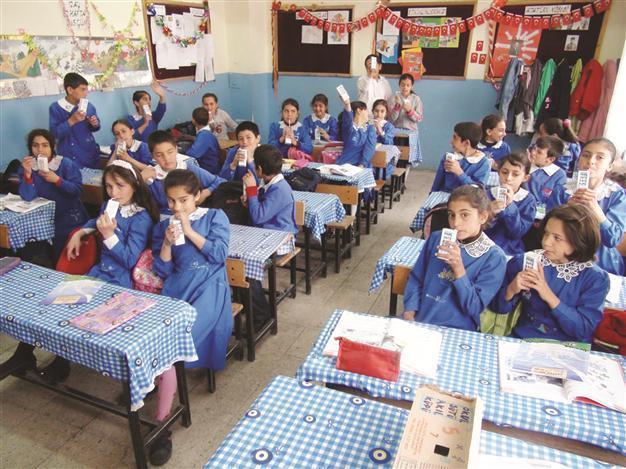School milk has no bacteria, Agriculture ministry claims
ANKARA - Anatolia News Agency

The annual per capita milk consumption in Turkey is 25 liters, whereas in other developed countries it is 80 liters, data from Health Ministry shows. DHA photo
A scientific council charged with supervising the recent ministerial initiative to distribute milk in public schools, which led to the hospitalization of thousands of children, has announced that no evidence of bacterial toxins or harmful microorganisms have been found in samples of the distributed milk.
“The milk needs of children and adolescents in many countries around the world are met via school milk programs. The school milk programs in our country will also contribute significantly to the growth and development of school-age children. [We] found nothing that would necessitate halting or suspending the program in light of the current data,” said an announcement issued by the scientific council of the free milk project.
One province stops distributionNone of the samples collected from the provinces involved in the program contained any bacterial toxins or microorganisms that could cause illness, although the samples gathered from the eastern province of Sivas did contain some non-toxic microorganisms, the statement said. Authorities have halted the distribution of milk in Sivas, because milk in that region failed to meet requirements for sterility, and has removed the company that provided the milk from the distribution chain, according to the statement.
“The annual per capita milk consumption in Turkey is nearly 25 liters, whereas the same [figure] in other developed countries is between 80 and 100 liters. Eleven percent of [children] between the ages of six and 10 say they do not drink milk, according to data from a survey conducted by the Health Ministry. Only 30 percent of the children surveyed said they regularly consume milk,” the statement said.
The ministry also indicated that current data did not lead them to believe that food poisoning was involved in the cases of the children who were hospitalized.
All phases of the school milk program will nonetheless be closely and diligently examined, according to the ministry.
